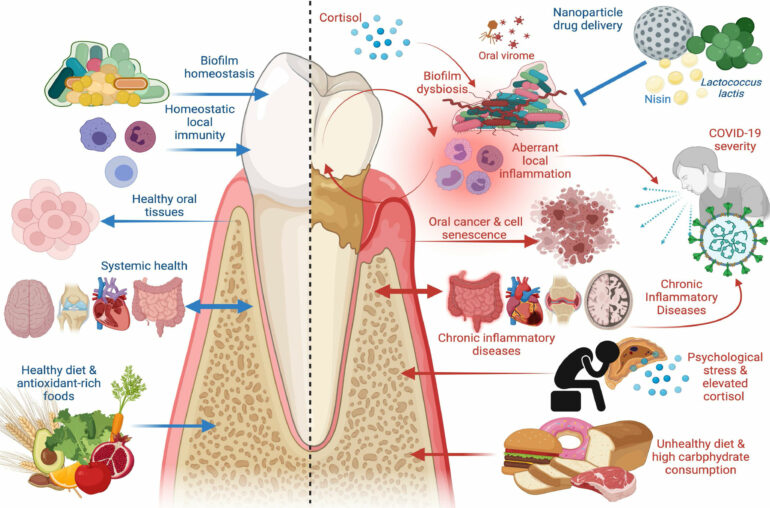Dental professionals can make a marked and positive difference to public health by being trained to spot some of the key markers of chronic disease, according to new research.
The study, titled “Opportunistic health screening for cardiovascular and diabetes risk factors in primary care dental practices: experiences from a service evaluation and a call to action” and published in the British Dental Journal, saw two general dental practices implement a suite of health screens for those attending regular dental check-ups.
It meant that as well as examining their oral health, patients were offered checks for their blood pressure, blood glucose, cholesterol, body mass index (BMI) and waist-to-height ratio.
Of more than 500 patients seen, 78% had blood pressure values above normal range, well over half (55.8%) were outside of the healthy range for BMI, and almost 40% had an above average waist-to-height ratio.
The tests also found just under 17% of patients exhibited out-of-range cholesterol results while high blood glucose values were observed for just over 3% of those seen.
All of the patients whose results were outside of the normal range were verbally advised to make an appointment with their GP for follow-up care.
The study’s authors included Professor Robert Witton and Dr. Martha Paisi from the Peninsula Dental School, which—through its Peninsula Dental Social Enterprise—provides appointments to more than 5,500 patients each year at clinics in Plymouth, Exeter and Truro.
“We already place significant emphasis on training students to provide holistic care for their patients. We also promote the concept of oral health being an integral part of general health and well-being. While there are resource challenges to consider in NHS dentistry, this study shows there are enormous opportunities for dental teams to support their patients and work more closely with our medical and health care colleagues to benefit public health,” says Robert Witton.
The overall study was led by the Royal Liverpool University Dental Hospital, and also involved researchers at the Future Health Partnership and Loughborough University.
Its primary aims included evaluating the number of patients who were willing to accept health screening, and sharing the recommendations from the service evaluation as a call to action the wider profession.
Writing in the study, the authors say their findings add further weight to previous suggestions that health screening in dental settings offers significant opportunities to detect patients with risk factors for chronic disease.
They also say the research shows dental professionals—in these cases dental and hygiene therapists—can be successfully trained to deliver the screening interventions, as well as brief lifestyle advice and signposting to general medical care or other appropriate clinical services.
However, the authors also state that clear protocols and careful interpretation of screening tests are required to minimize patients’ confusion, and more robust alliances will be needed between dental and general medical care.
Such closer alliances would align dentistry with the NHS Long Term Workforce Plan, which is encouraging collaborative working across NHS platforms to increase the early detection of high-risk conditions associated with cardiovascular disease.
Dr. Janine Doughty, lead author of the study and based at the Royal Liverpool University Dental Hospital, said, “A health check at the dentist could provide reassurance for many patients, and a wake-up call for others to become healthier. We have someone already sitting in the chair, who visits the dentist every six to 12 months, yet who may not have seen a GP for years. It is simple to give them a few minutes of health checks at the same time.”
More information:
Janine Doughty et al, Opportunistic health screening for cardiovascular and diabetes risk factors in primary care dental practices: experiences from a service evaluation and a call to action, British Dental Journal (2023). DOI: 10.1038/s41415-023-6449-6
Provided by
University of Plymouth
Citation:
Study suggests dental professionals can play a crucial role in identifying signs of chronic disease (2023, November 24)



